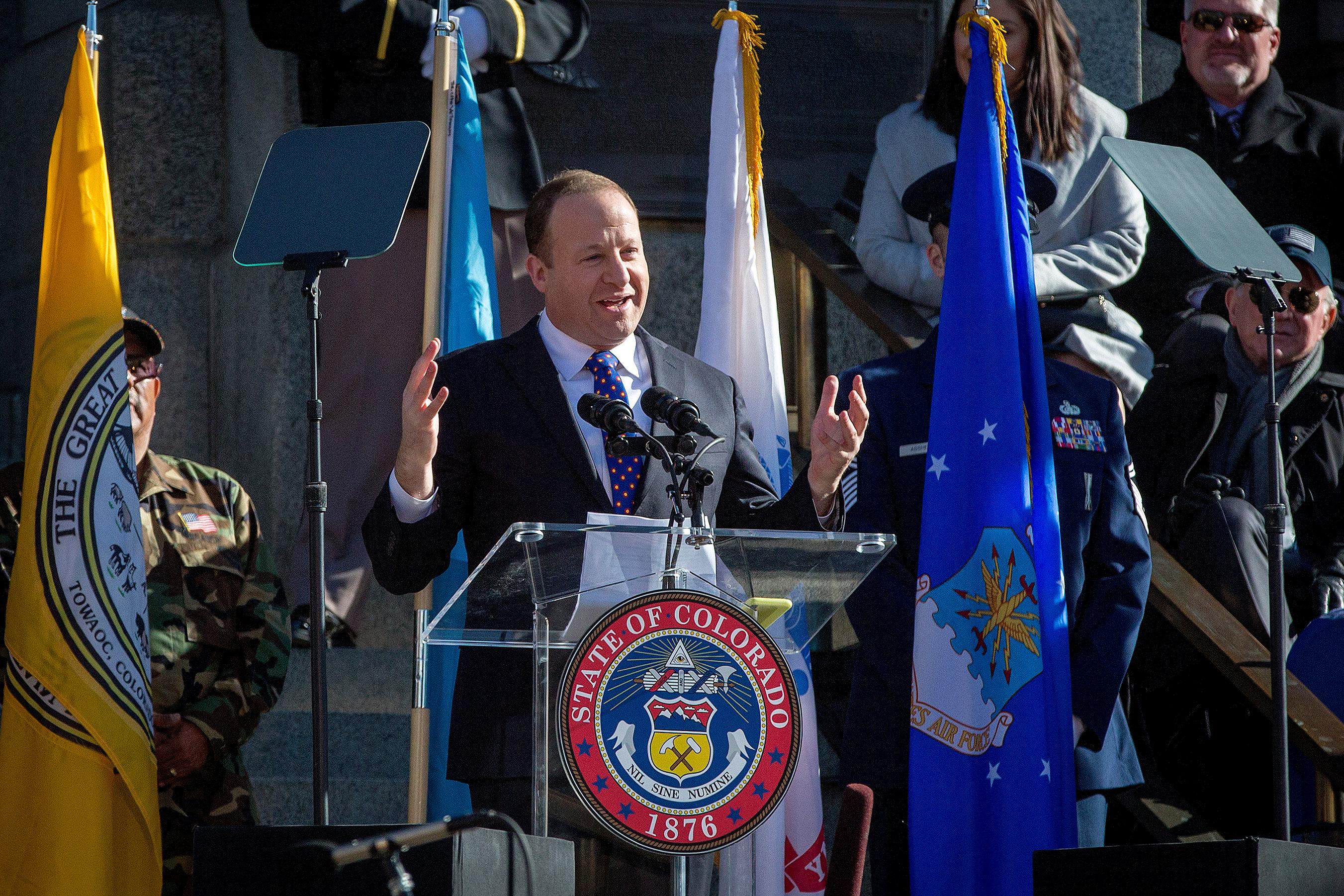

Colorado Gov. Jared Polis pitched his plan for state-funded full-day kindergarten to lawmakers on Wednesday, calling it an opportunity to address educational and economic inequities facing young families.
Polis asked for $227 million for full-day kindergarten — to start this fall — in a $33.7 billion budget request for the fiscal year that starts July 1. Funds for that and $25 million in implementation costs would come from surplus tax revenue legislative budget writers have to work with this session.
Polis formally presented his first budget Wednesday to the powerful bipartisan Joint Budget Committee.
“You have a historic opportunity. For decades, legislators have worked to find a way to fund kindergarten in our state,” he said. “It’s a reality that giving kids a strong start is absolutely essential to their success.”
Minority Republicans want to use that windfall to pay down a multimillion-dollar state debt to public schools and invest in Colorado’s increasingly congested and aging road network.
- GOP Reaction To Polis’ Legislative Agenda: ‘We Don’t Know What It Will Cost’
Republican Rep. Bob Rankin, a budget committee member, welcomed Polis’ emphasis on schools. But he urged caution.
“I think a good reason we have excess money is that oil production is up,” Rankin said, alluding to an industry that is bracing for tougher environmental regulations under the Polis administration. “I also am concerned about transportation and how we need to put more money in it.”
The Democratic governor, who took office Jan. 8, is a tech and education entrepreneur who has founded two public charter schools for at-risk youth and launched his political career with a seat on the state education board.
Polis insists early childhood education produces higher graduation rates and contributes to a strong economy. He cites the challenge faced by tens of thousands of Colorado families who must decide whether to pay local school districts for kindergarten, which can cost up to $500 a month.
Colorado currently pays for half-day kindergarten. Despite a law requiring annual increases in K-12 spending, the state long has underfunded K-12 by hundreds of millions of dollars. Lawmakers have used an end-around, essentially an IOU to schools, in fashioning a budget that by law must be balanced each year.
Nearly 50,000 Colorado children attend full-time kindergarten, 19,000 of them free, the state education department says. Polis said his plan would allow 13,000 more children to attend and save districts $100 million for other educational purposes. And he cited enrollment and funding figures for each budget committee member’s district.
Republicans, now in the minority in both legislative chambers after the November election, want to dedicate large portions of the new revenue to roads and schools. One GOP proposal would dedicate $340 million in fiscal year 2019-2020 to each.
Polis’ budget request keeps tuition flat at Colorado’s state-run universities and colleges next year. It provides seed money for a new health care policy office, efforts to enable private health insurers to limit premium hikes, paid parental leave for state workers and more oil and gas field inspectors.
The governor told lawmakers his administration is looking into possibly expediting state unemployment funds for federal workers affected by the U.S. government partial shutdown. The chance of effects on the state budget, he said, will increase if the shutdown persists for weeks or months to come.








